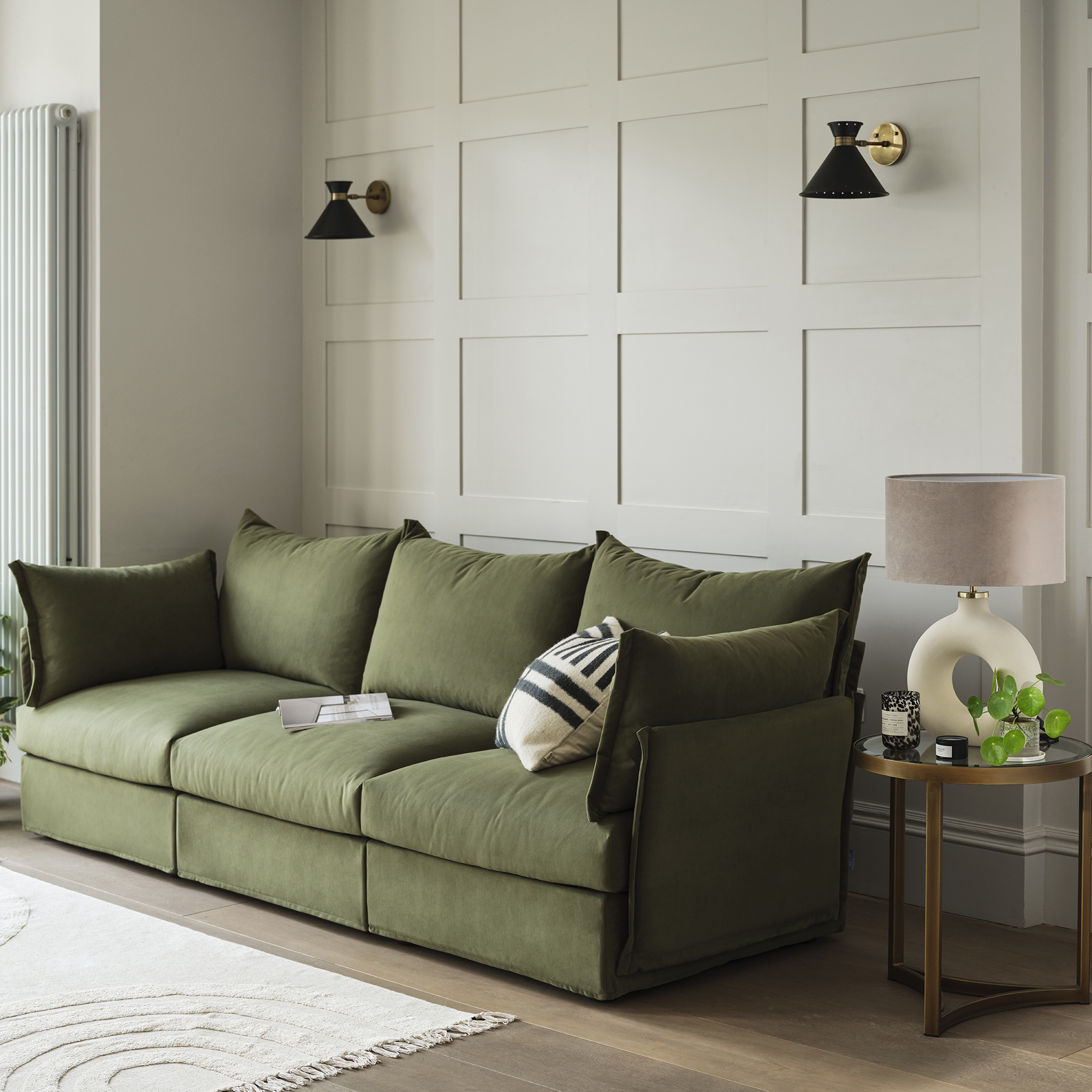
Wondering how to choose sofa upholstery so you make the right decision for your living room decor and the longevity of your purchase? There are many considerations to take into account when shopping for a living room sofa, and the fabric type you choose will impact the look of your lounge and how you use it.
Buying one of the best sofas is one of the most important purchases you'll make, and likely one of the most expensive, so it's crucial to get it right. From durability and stain resistance to colour and pattern, understanding the different elements of choosing sofa upholstery will ensure that your living room is functional and looks stylish.

How to choose sofa upholstery
Choosing a sofa can feel like a daunting task. Not only are they often expensive, but you want to own it for a considerably long time, which ups the stakes of the decision-making.
'Your sofa is the centrepiece of your living space, so finding the right one is key to elevating the room and creating a comfortable place to relax and unwind. Keep things simple by considering size, style and fabric,' says Francesca Hadland, Styling Expert for Bridgman.
Once you've established which features you're looking for, whether that's colour, size, or maintenance, you can explore where to buy a sofa and scout out the best sofa deals.
1. Consider your budget
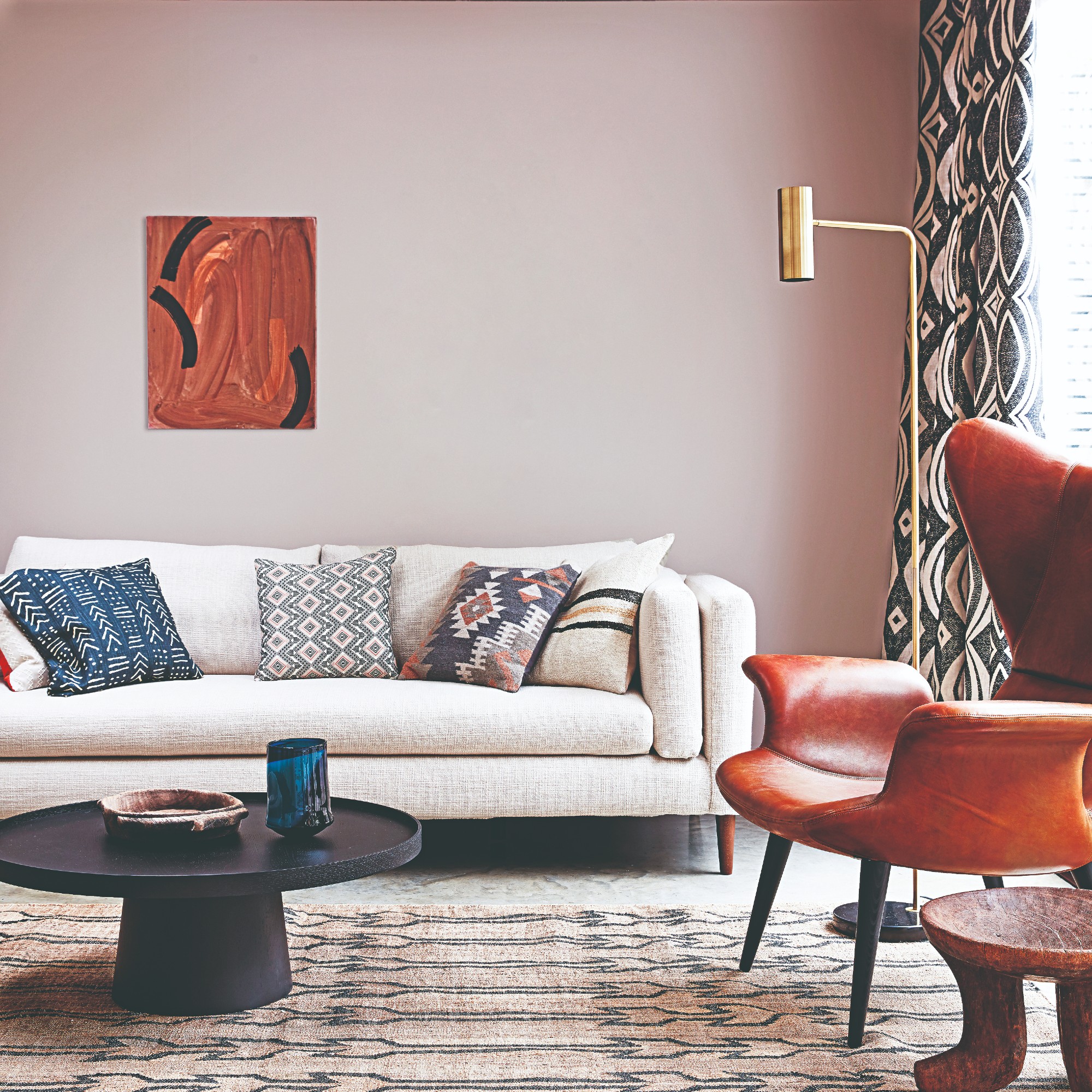
Certain materials will cost more than others, so set your budget before you start exploring which upholstery you want. There are a whole host of more affordable sofas and they even come in luxe materials such as velvet.
If you have a smaller budget then you will likely be limited to a few fabrics that are available within your price range, whereas if you have a bigger budget, you have much more control over customising your sofa. Made to measure sofas give you full control over the size, shape and fabric of a sofa, but these will come at a cost and a longer lead time.
2. How durable do you need it to be?
Durability is one of the biggest things you're likely to consider when shopping for a new sofa as you'll want it to last for years. Also, think about where the sofa will be placed in your home, is it in the living room where people are sat on it every day? Or will it be used in a kitchen or spare bedroom infrequently?
'Look for fabrics that are durable, spill-resistant, and long-lasting. Whether you’re a busy family, enjoy a curry night on the sofa or have a fur baby to think about, you can put your feet up without worrying about dreaded stains or spills,' says Dani Burroughs, head of product at Snug.

If it's only lightly used, then you can splash out on a more luxurious material. Whether that's a high-thread-count cotton, a leather sofa or a velvet sofa, but bear in mind that they might wear unevenly.
The higher the thread count, the longer your sofa cover will last. So even if your sofa will be used frequently, it's often worth the investment if you have the funds. You should also consider where your sofa is going to live - if it's going to be right next to a window then opt for a fade-resistant fabric to prevent any sun damage.
'Consider the durability of the fabric by looking at the rub count, a test which determines how soon fabric will show signs of wear and tear. For a residential home, I wouldn’t recommend a rub count below 25,000 and at Swyft we don’t stock any fabrics below this,' Kelly Collins, head of creative and PR at Swyft, advises.
3. Does it need to be pet or child-friendly?
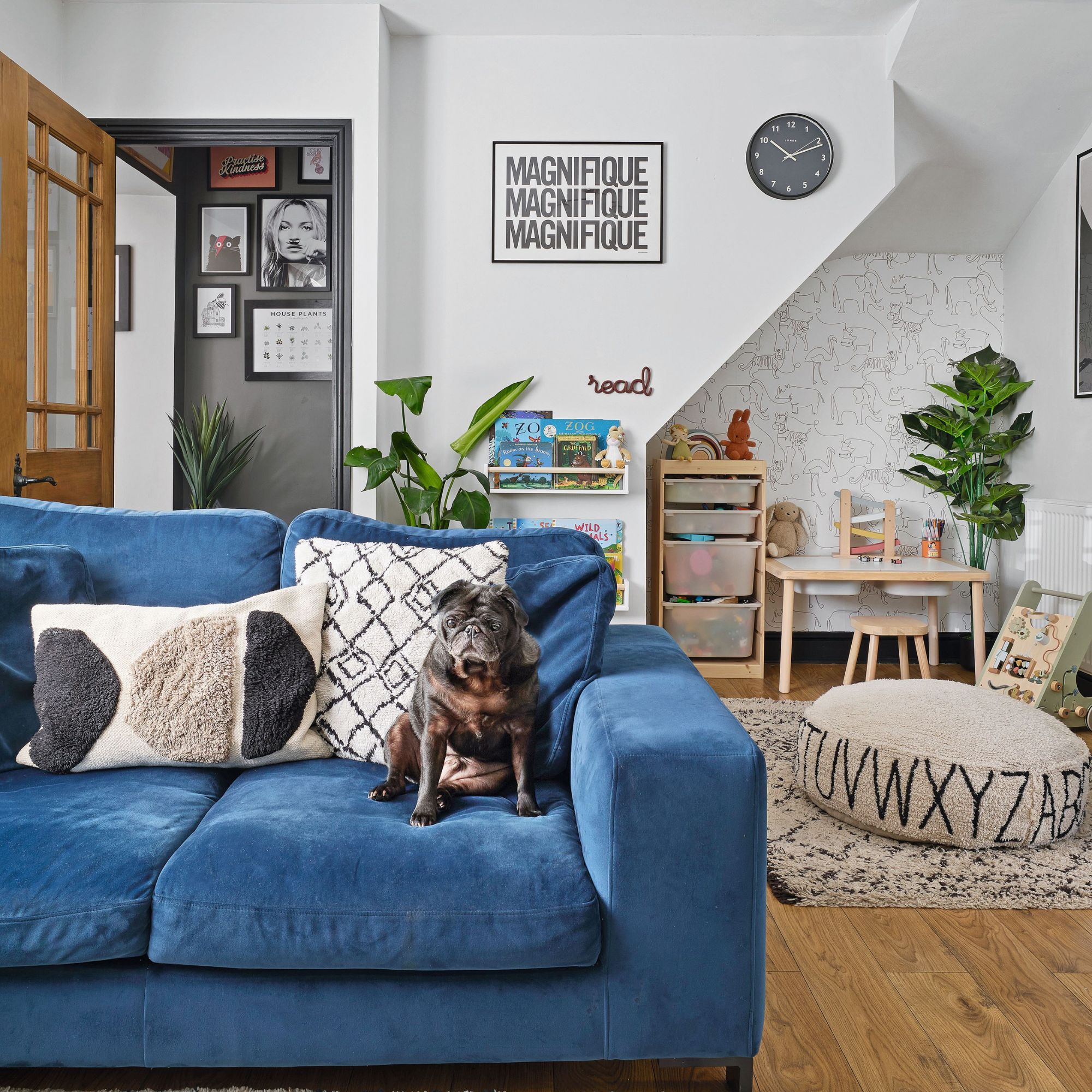
If you have pets or children or think you might in the future, then take this into account when shopping for a new sofa. Materials with long natural fibres will become hotspots for dust, dirt, and pet hairs so if you have allergies or a four-legged friend, it's best to steer clear and opt for synthetic blends instead.
A lint roller will be your best friend for getting pet hair off a sofa, but if you want to bring your maintenance levels down then try a tight weave fabric that they'll be less likely to cling to.
'When choosing velvet remember that animal hair will stick more to this fabric compared to linens or linen effect. If you have an animal like a cat who will scratch, velvet may be better as it’s more forgiving and linen is easier to catch. With faux or real leather there is a saying that it always remembers, so be careful if you want a pristine look,' Kelly recommends.
And when it comes to choosing sofa upholstery that is practical for small children with sticky hands, stick to stain-resistant fabrics or those that have been treated so that they're easy to clean. This might be easier than you think to find upholstery that ticks the style and function boxes simultaneously as brands such as Swyft sell chic velvet sofas that are stain-resistant.
4. What colour do you want your sofa to be?
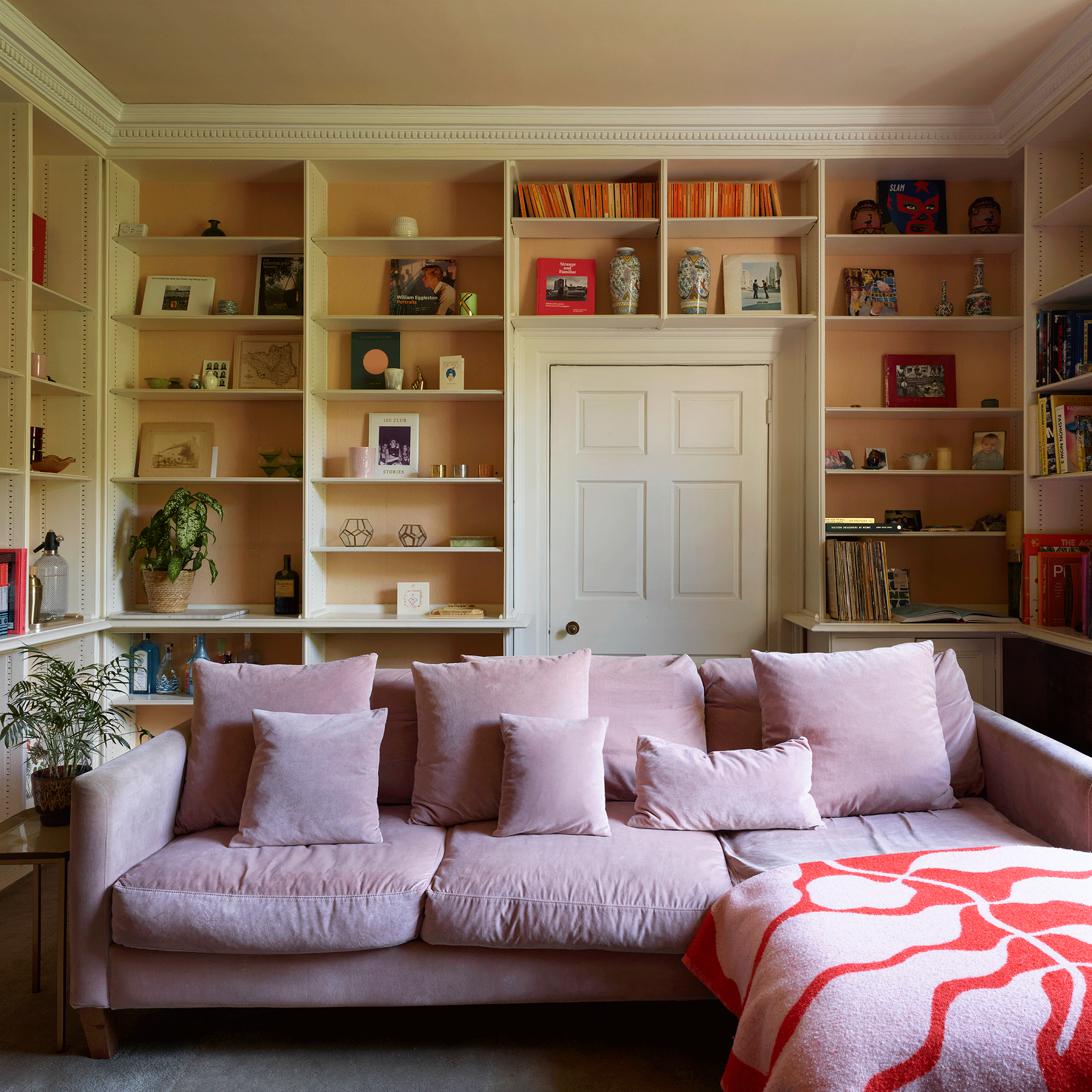
Once you've thought about the more practical elements of choosing sofa upholstery, you can focus on the fun part - what colour do you want? It can be tempting to opt for a neutral shade, like a grey sofa, for longevity purposes, but a colourful sofa has the ability to transform a living room colour scheme.
First, think about whether you want your sofa to stand out or blend in. Do you want the colour focus to be on the walls, soft furnishings, or perhaps all over? The downside of choosing a trendy tone such as an emerald green sofa is that it might not be 'in' in a few years, but if you love it then this shouldn't influence your decision.
'When looking to colour, consider the depth and richness of the shades you choose to include in your home, rather than tone. By choosing deep, rich colours like dark greens and rusty reds, you'll instantly enhance the natural warmth of any room,' Francesca adds.
There is also a practical side to selecting a colour. If you want to avoid any colour transfers from clothes to upholstery or disguise any stains, then a dark colour might be best. Alternatively, if you have a dark, north-facing room then a lighter-toned sofa will enhance the look and feel of the room.
5. Pattern or plain?
Once your colour palette is decided, it's time to figure out whether to stick to a block shade or add interest with a pattern.
A pattern, whether floral, stripes, or a subtle woven texture, will help to disguise any dirt or spillages, so it might be a wise choice for a busy family sitting room. And if you feel that you might tire of a pattern, then it's worth pricing up how much it would cost to reupholster a sofa in the future.
'Our woven Cartouche Fabrics that feature geometric prints and cut velvets, make for stunning upholstery. Depending on what other elements you have in a room, a piece of furniture can look very different from being upholstered,' says Tricia Guild, OBE, founder and creative director of Designers Guild.
'I love to mix textures; the way that the shimmer of velvet works with a very raw linen – the contrast evokes the inherent beauty of each. Don’t neglect this factor – take time to consider what fabric you upholster in, as it will not only create emphasis on the furniture, but the room as well.'
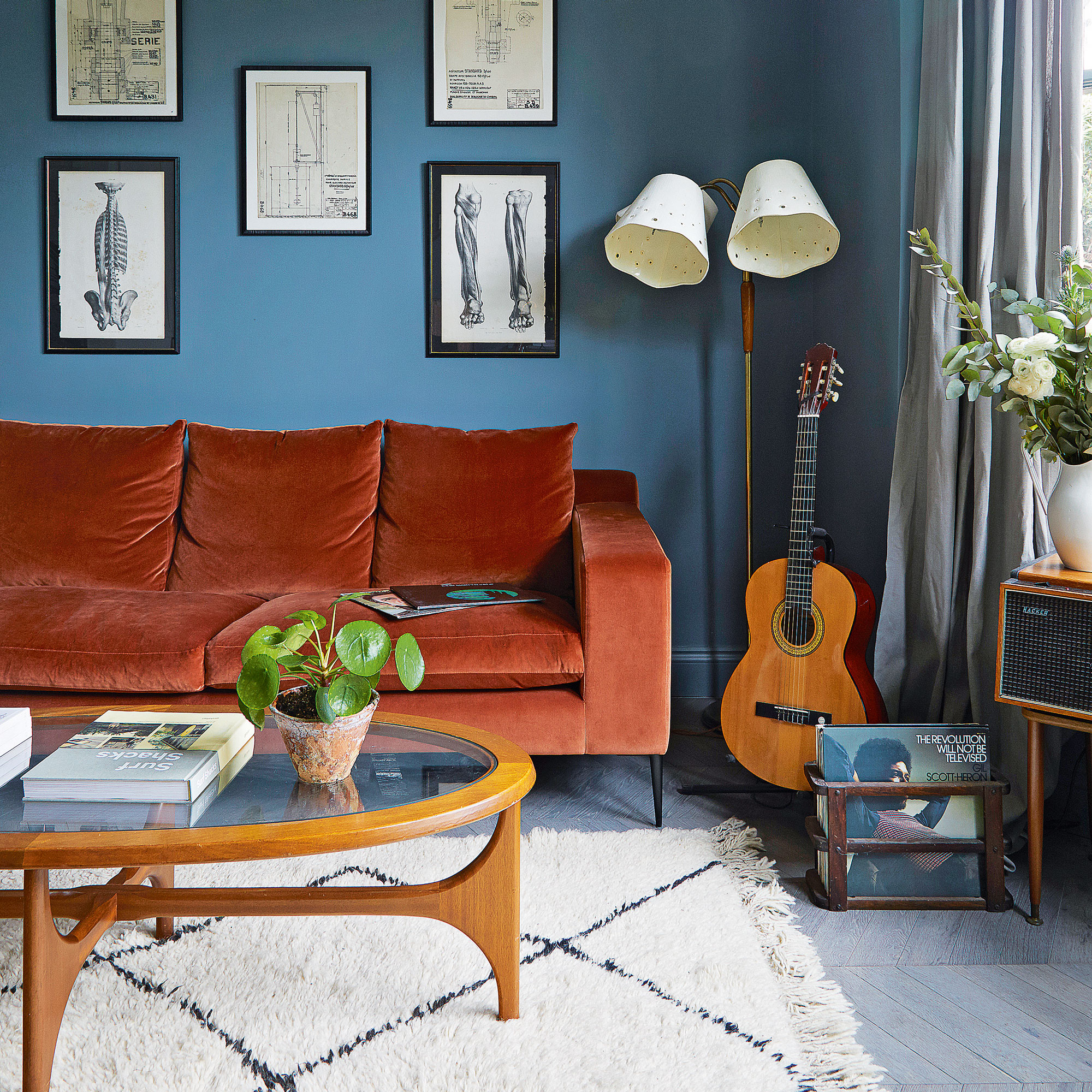
6. How easy is it to clean?
As well as picking upholstery that's stain-resistant and durable, you'll want to check how easy it is to clean. When it comes to a spillage occurring, being safe in the knowledge that it won't take hours of scrubbing will give you peace of mind that your sofa will survive the stain.
Learning how to clean a sofa will be important info to keep in your back pocket for a rainy day, so you don't end up damaging the fabric further by using chemicals that will bleach the upholstery or harm the texture. Fabric-specific cleaning details, for example, how to clean a velvet sofa, will also be helpful as it may vary from standard woven materials.
7. Think about the finishing touches
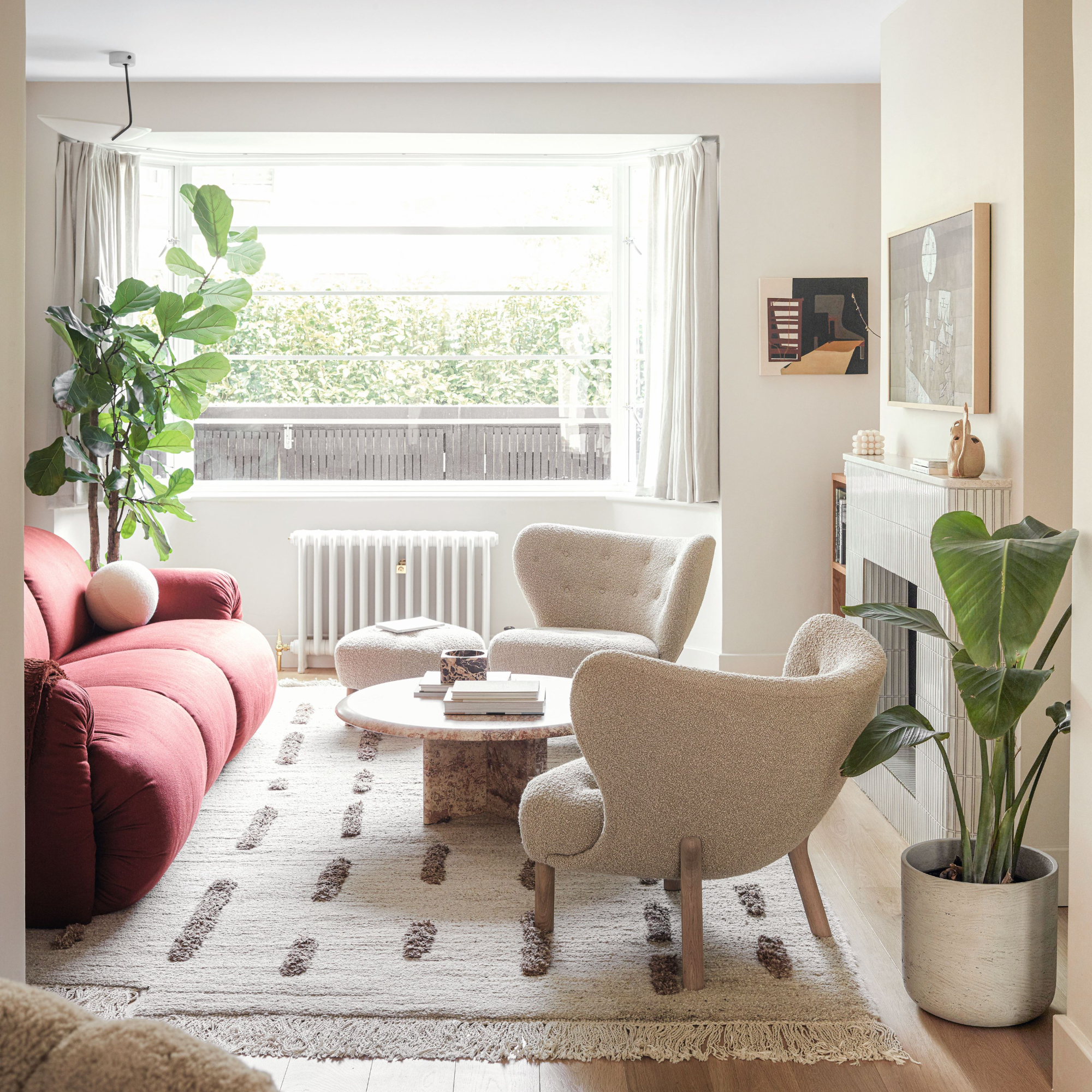
Upholstery forms the foundation for the rest of your soft furnishings, so consider which sofa cushions, rugs and throws you're going to select to complete the look. You can even feature a footstool or armchair in a bright colour or daring material to give you a taste of character as a more affordable, or less-committal, feature.
'Create cohesion by choosing an armchair in the same style and colour as your sofa, or opt for an accent chair to enhance your space with a striking silhouette. Don’t forget to pair it with a footstool so you can sit back and unwind in absolute comfort,' adds Francesca
'One other thing people often overlook when choosing a fabric is thinking about how it works in conjunction with the rest of your scheme and the style of your sofa,' Helena Davies, head of home buying at Barker and Stonehouse, recommends.
'Boucle is a very chic and an increasingly popular choice both for its laid-back, cosy appeal and surprisingly durable nature due to its characteristically nubby texture, but I’d recommend avoiding this fabric in rooms that are overly decorative or more traditional in style. For a more farmhouse or traditional country look, velvet and linen finishes on classical silhouettes work in perfect harmony. If you still love the boucle look, smaller furniture items such as footstools or even cushions are a great way to add your favourite fabrics into a space.'
What is the most durable fabric for a sofa?
There are so many durable materials that make practical choices for sofa upholstery. It will really depend on your specific household needs and habits for just how much durability you require.
'Linen is a great alternative as it only becomes softer with age while remaining durable for a perfectly lived-in feel that will stand the test of time. The tight-weave and short pile of these materials means they also don’t trap dust and hair as easily making them easier to maintain, particularly if you like to share a sofa with a furry friend,' recommends Shelley Cochrane, accessories buyer at Furniture Village.
Leather is also a reasonably durable choice as it's easy to clean and will wear well, as long as it's treated properly.
From linen to velvet and everything in between, there are so many sofa upholstery choices to consider, but hopefully you will now be well on your way to making the right purchase for your home.







